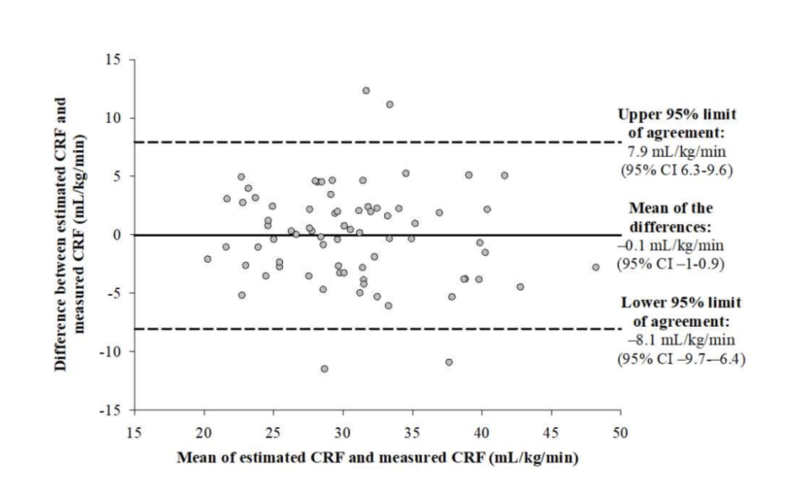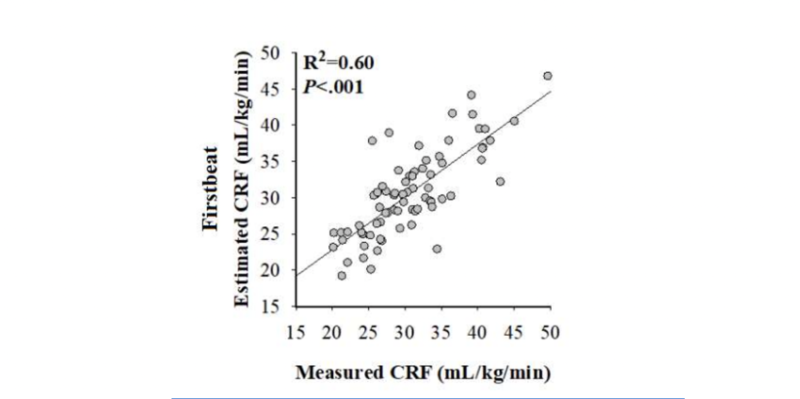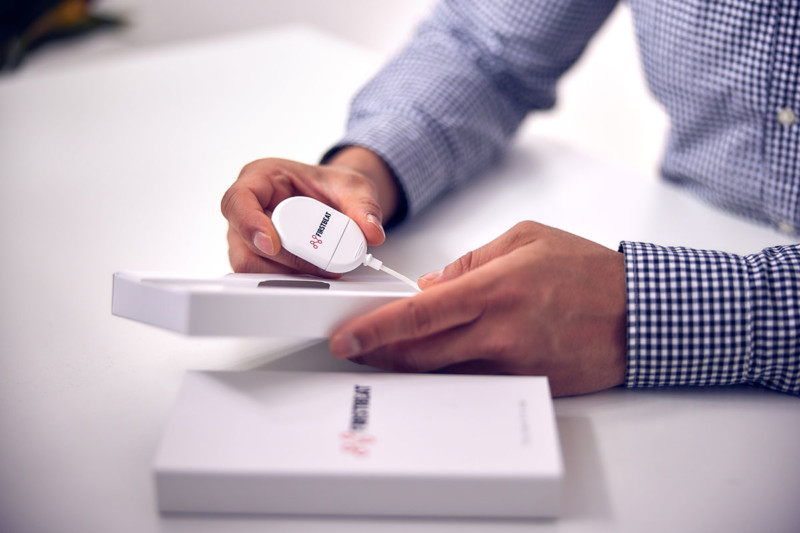
Cardiorespiratory fitness (measured as VO2max) is an expression of the body’s ability to deliver and utilize oxygen for energy during physical exercise. It reflects the interplay between respiratory, cardiovascular, and skeletal muscle systems to take up, deliver and utilize oxygen for energy. Reduced cardiorespiratory fitness (CRF) echoes a weakness in one or more of these crucial physiological systems and low CRF levels have been independently associated with an increased risk of cardiovascular diseases, cancer, morbidity, and all-cause mortality rates. Potentially, CRF may be an even stronger predictor of mortality than established risk factors, such as smoking, hypertension, high cholesterol, or type 2 diabetes mellitus. Based on this evidence, American Heart Association have proposed cardiorespiratory fitness to be considered a vital sign, and suggested that fitness level evaluation should be added into clinical practice, together with traditional data, to comprehensively evaluate the health risks of patients.
How is Firstbeat Life Used for Fitness Level Evaluation?
Since CRF, defined as the maximal or peak level of oxygen utilization (VO2max or VO2 Peak) during physical exercise, is such a crucial parameter of a person’s health and performance status, we need easily applicable methods for testing fitness in real-life conditions that do not require maximal exercise performance in a laboratory. Firstbeat provides this kind of a method with the Firstbeat Life service: a 30-min self-paced brisk walk while collecting accurate heart rate variability and acceleration data. Firstbeat Life makes it very easy to get an accurate estimation of a person’s fitness level – for the benefit of the client using the application as well as the coach utilizing Firstbeat Life to support the client’s wellness journey with lifestyle-related data.
New Study Explored Validity of Firstbeat’s Method for Assessing Cardiorespiratory Fitness Level
A new study published by JMIR Cardio evaluated the validity of Firstbeat’s VO2max estimation with working-age adults with heterogeneous cardiovascular disease risk factor profiles. The study included 74 participants, who performed a controlled laboratory test by walking on a laboratory treadmill. During the test, the participants’ oxygen consumption was measured with a gold-standard gas analysis method for measuring their VO2 Peak. On a separate occasion, the participants performed a 30min self-paced walk on a 200m indoor track, supervised by a research assistant. The results of these two tests were then compared.
When considering the results of all 74 participants, it was found that the mean difference between the Firstbeat-estimated CRF and CRF measured in a laboratory test was minimal (−0.1 mL/kg/min). The mean absolute error was 3.1 mL/kg/min, corresponding to a percentage difference of 10.4%, on average. In addition, there was good concordance between the two methods, with the intra-class correlation coefficient of r=0.88 (95% CI 0.80-0.92)

Figure 1: The Bland-Altman plot of the results. Each plot presents the result of one subject. The difference between the Firstbeat-estimated vs. laboratory-measured CRF results is indicated on the Y-axis. The mean difference was minimal (0.1 mL/kg/min, expressed with the continuous black line).

Figure 2: Correlation between Firstbeat-estimated vs. lab-measured cardiorespiratory fitness as mL/kg/min.
The results also showed that the Firstbeat method provided similar accuracy in women and men, across age and body composition categories, as well as in participants with hypertension, normal glucose metabolism, prediabetes, and metabolic syndrome. The results were less accurate with participants who had type 2 diabetes than with the other subgroups.
The authors stated that achieving accuracy within +1 or -1 MET (i.e. ± 3.5 mL/kg/min) would be a meaningful result because +1 or –1 MET translates into prognostically significant CRF deviation. This was achieved with the Firstbeat method – the error was, on average, 0.89 MET (=3.1 mL/kg/min). The authors concluded that the difference between a lab test and the Firstbeat method is likely to be below or at least very close to the clinically significant level of 3.5 mL/kg/min in working-aged adults with cardiovascular risk factors.
Supported by the good accuracy of the Firstbeat fitness level result, the authors further concluded that, from a large-scale clinical perspective, wearable technologies have the potential to estimate an individual’s cardiorespiratory fitness with acceptable accuracy in clinically relevant populations.
What Are The Implications of This Study?
This study shows that a sub-maximal field test in the form of self-paced brisk walking and Firstbeat’s analysis of HRV and acceleration data can yield accurate VO2max results even in clinically challenging populations with elevated health risks. Firstbeat Life provides a method that is suitable and feasible for large-scale usage in real-life conditions. Utilizing fitness level information in behavior change interventions can change the trajectory of fitness level development during a person’s lifespan, and consequently, have positive effects on the person’s health. It should also be noted that one does not need to be highly fit to benefit from improved fitness. Numerous studies have shown that the most significant health benefits were observed when the least fit were able to improve their fitness even slightly. Firstbeat Life allows easy tracking of clients’ fitness level for clinicians and experts in the field, integrated into the clients’ measurement routine. Let’s take advantage of this opportunity!
Firstbeat Life is the leading technology to support the health and well-being of your customers. It offers you a unique capability to succeed in the growing market for proactive health and well-being services. Learn more about Firstbeat Life.
If you liked this article, you should subscribe to our newsletter.
You might also be interested in

Resting Heart Rate – How to Utilize Heart Rate Information in Firstbeat Life
Resting heart rate is a key component in detecting stress and recovery as part of the Firstbeat Life™ service. A reliably measured resting heart rate forms a strong foundation for interpreting…

My Experience with Covid-19 – and What the Data Showed on The Road to Recovery
I stayed clear of Covid-19 for two and a half years, with vaccinations, good luck, a healthy lifestyle, and common sense (masks, hand washing, and avoiding crowded places whenever I…

Notifications on Poor Recovery: Take a Proactive Approach to Your Health
Physiological data can reveal how your body is coping with everyday life. But how do you know when you need to address certain issues? Personalized notifications in the Firstbeat Life solution let you know when your measurement results need extra attention.

